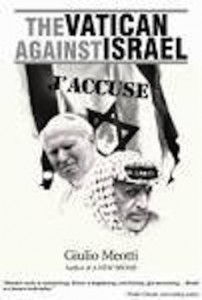Seventy-two years ago yesterday, two Polish women, Zofia Kossak and Wanda Filipowicz, founded the Council for the Assistance of the Jews. By 1942, awareness of the intent of the Final Solution was becoming widespread. By creating an underground movement to assist and shelter Jews in Nazi-occupied Poland, these women and all who assisted them put their own lives at immense risk.
Throughout the Second World War, countless individuals, at great risk to themselves and their families, undertook to assist their Jewish neighbors. These included Christians in every part of Europe and also Muslims, notably in Albania.
There are, of course, plenty of stories of collusion, betrayal and collaboration. There are, we remind our children, good and bad behaviors among any group of people, but the redemptive stories of people doing the right thing help restore humanity to our collective self-understanding.
Today, Jewish people still face challenges in various parts of the world. By sheer numbers, however, the vast majority of Jews live in Israel and North America, where life is free of the systemic bigotry Jewish people experienced in much of the world through much of history. Especially now, from our place of relative security and privilege, we should be turning our attention to the atrocities playing out against other minorities around the world.
In the world today, Christians are being persecuted and murdered in Africa and Asia. In North Korea, an estimated 50,000-70,000 Christians are held in the country’s notorious labor camps. In Nigeria last year, more than 300 churches were destroyed and more than 600 Christians killed; and mosques are being targeted with deadly attacks against clerics who speak out against the Islamist group Boko Haram, as happened – again, tragically – earlier this week. In Yemen and elsewhere in the Muslim world, those who convert to Christianity face the death penalty. In China, government forces oppress Uyghur Muslims in the west of the country. In Cambodia, members of the Buddhist majority have been attacking the Muslim minority. And, in India, systematic violence against Muslims is widespread. The list goes on and on – and this list only includes instances of persecution against Muslims and Christians; there are many other populations around the world under threat of discrimination, persecution and brutality.
The Jewish value of adam yachid, a single human being, means that humankind descended from one individual so that no one can say, “My father is greater than your father.” As Jews, but more especially as people who enjoy the freedom to express ourselves without fear of retribution from government or mob, we have an obligation to speak out on behalf of those who cannot. This is something we should do not because others did it when we were oppressed, but because their actions are the model of the human(e) response to injustice.
What can we do? In small and large ways, we can inform ourselves and our circles of influence about the issues facing minority communities worldwide. There are plenty of organizations working quietly on these topics. Consider supporting one. Inform yourself on events in other parts of the world that affect specific populations. When elected officials – and those who hope to become elected officials – knock on our doors in the federal election next year, we should let them know that the issues that are important to us go beyond those that impact our immediate lives.



